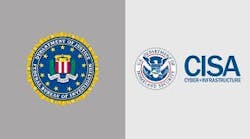Oct. 27--A decade ago the Bernie Beiers of the world didn't exist.
Nobody dropped the term "homeland security" in casual conversation and there certainly weren't any "Directors of Homeland Security." That all changed after the terrorist attacks of Sept. 11, 2001. In 2005, the destruction of New Orleans by Hurricane Katrina brought more devastation to television screens.
Enter the era of emergency management -- the coordinated response of multiple agencies to disasters of all kinds.
"It's huge," said Beier, a retired Marine and director of the Fort Wayne-Allen County Homeland Security Office. "The struggle is that it doesn't come with any education. Typically you grow those careers, but between 9/11 and Katrina, a couple of events that hit real fast, the growing curve is a straight line. You don't get to ease into them or try them out."
With the demand for emergency-management training skyrocketing, three local universities and a high school will be offering classes -- and one bachelor's degree -- in conjunction with the new Regional Public Safety Academy set to open late next month on the former site of Southtown Mall. The 132,000-square-foot structure will be a hub for training professional first responders.
The model could be one for the rest of the state and beyond, said the academy's director, Brent Johnson, who doesn't know of anything else like it anywhere.
"We wanted to take it beyond just training." Johnson said. The academy's partnership with the schools is garnering attention from all over, he added.
Starting in January, Tri-State University will offer a bachelor's degree in Emergency Management, one of a few in Indiana, according to Jean Deller, dean of the School for Professional Studies. The university has rented space in the Safety Academy for classes devoted to managing school shootings, HAZMAT spills, response operations and weather disasters. Classes will be taught by professionals.
"We want to make sure we're preparing students for a need," said Deller. "We're networking with the state as a whole, opening avenues for jobs."
That is exactly what the academy and area schools wanted. Johnson said during the past two years he met often with officials from Tri-State, Indiana University-Purdue University Fort Wayne, Ivy Tech, Indiana Tech and the Anthis Career Center about having classes at the academy.
Students will be able to ask questions and see how things work in the real world, not in a textbook, Johnson said.
"You can confuse the theoretical and the practical," Johnson said. "Now, if you're in a class, like a criminal justice class, and something doesn't sound right, you can go out and grab somebody in uniform and ask them about it."
The degree is from Tri-State, but the transition will be a smooth one for someone with an associate's degree coming into the program, according to Thomas Beckner, who will direct the program and another new one offering a master's degree in criminal justice.
"It's a very competitive environment," Johnson said, "and very few places around have educators sitting together and talking."
Ivy Tech also plans to move its paramedic science, fire science and criminal justice courses into the Safety Academy, Johnson said.
The opportunities beyond graduation are numerous. Beier said businesses, especially large ones, are starting to employ their own emergency management directors to coordinate internal response in the event of a major disaster. Though smaller businesses might not be able to afford it, they benefit by having someone on staff who knows key principles of emergency management.
"Small or mid-size businesses assume a lot more risk, and don't spend as much time planning for risk," he said.

